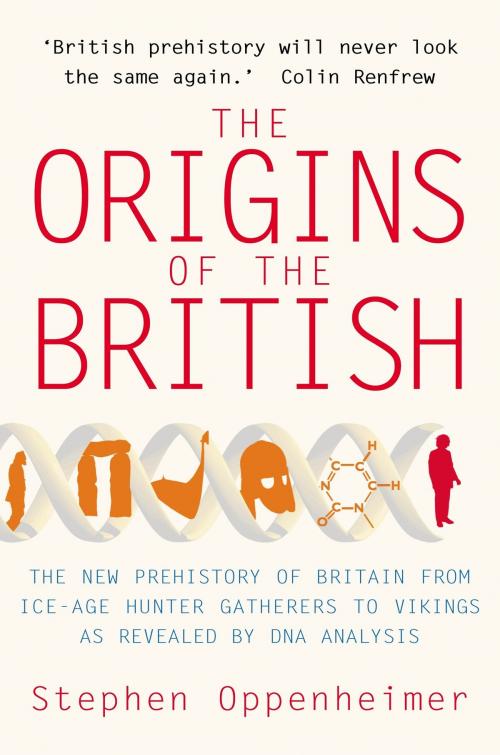| Author: | Stephen Oppenheimer | ISBN: | 9781780337678 |
| Publisher: | Little, Brown Book Group | Publication: | March 1, 2012 |
| Imprint: | Robinson | Language: | English |
| Author: | Stephen Oppenheimer |
| ISBN: | 9781780337678 |
| Publisher: | Little, Brown Book Group |
| Publication: | March 1, 2012 |
| Imprint: | Robinson |
| Language: | English |
Stephen Oppenheimer's extraordinary scientific detective story combining genetics, linguistics, archaeology and historical record shatters the myths we have come to live by. It demonstrates that the Anglo-Saxon invasions contributed just a tiny fraction (5%) to the English gene pool.
Two thirds of the English people reveal an unbroken line of genetic descent from south-western Europeans arriving long before the first farmers. The bulk of the remaining third arrived between 7,000 and 3,000 years ago as part of long-term north-west European trade and immigration, especially from Scandinavia - and may have brought with them the earliest forms of English language.
As for the Celts - the Irish, Scots and Welsh - history has traditionally placed their origins in Iron Age Central Europe. Oppenheimer's genetic synthesis shows them to have arrived via the Atlantic coastal route from Ice Age refuges including the Basque country; with the modern languages we call Celtic arriving later.
There is indeed a deep divide between the English and the rest of the British. But as this book reveals the division is many thousands of years older than previously thought.
Stephen Oppenheimer's extraordinary scientific detective story combining genetics, linguistics, archaeology and historical record shatters the myths we have come to live by. It demonstrates that the Anglo-Saxon invasions contributed just a tiny fraction (5%) to the English gene pool.
Two thirds of the English people reveal an unbroken line of genetic descent from south-western Europeans arriving long before the first farmers. The bulk of the remaining third arrived between 7,000 and 3,000 years ago as part of long-term north-west European trade and immigration, especially from Scandinavia - and may have brought with them the earliest forms of English language.
As for the Celts - the Irish, Scots and Welsh - history has traditionally placed their origins in Iron Age Central Europe. Oppenheimer's genetic synthesis shows them to have arrived via the Atlantic coastal route from Ice Age refuges including the Basque country; with the modern languages we call Celtic arriving later.
There is indeed a deep divide between the English and the rest of the British. But as this book reveals the division is many thousands of years older than previously thought.















